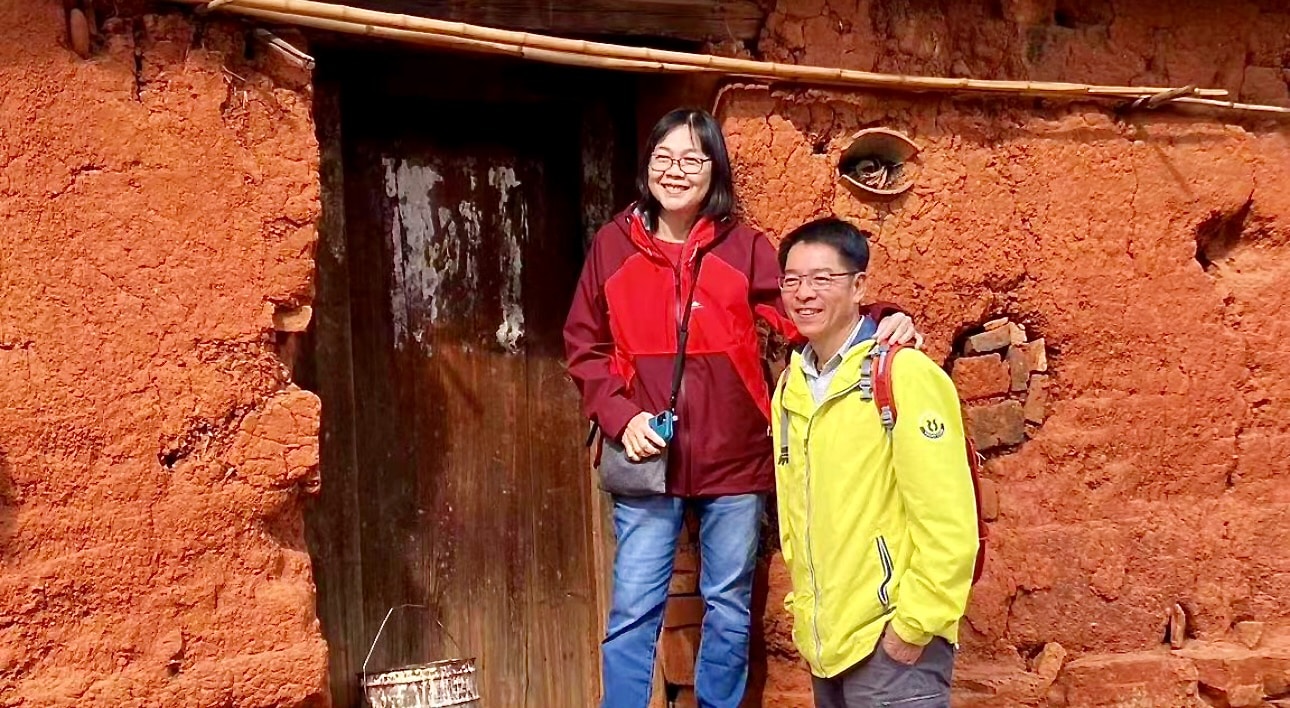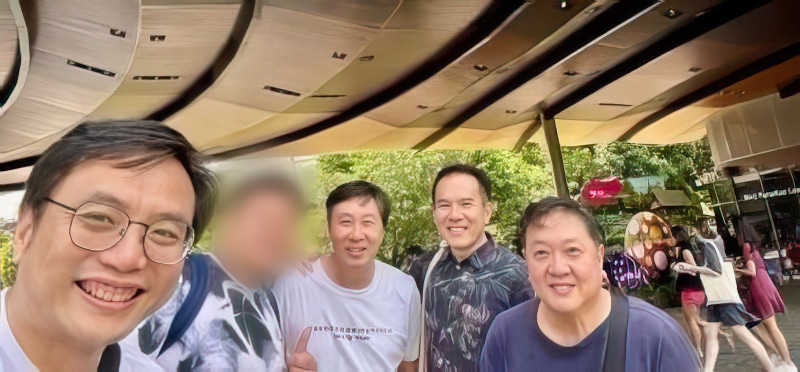The church at the cusp of change, will it grow or decay?
This is the introduction to a new Salt&Light series titled Urban Shalom, focusing on what it means to be a missional church community in a local urban neighbourhood.
Salt & Light // January 3, 2019, 1:12 am
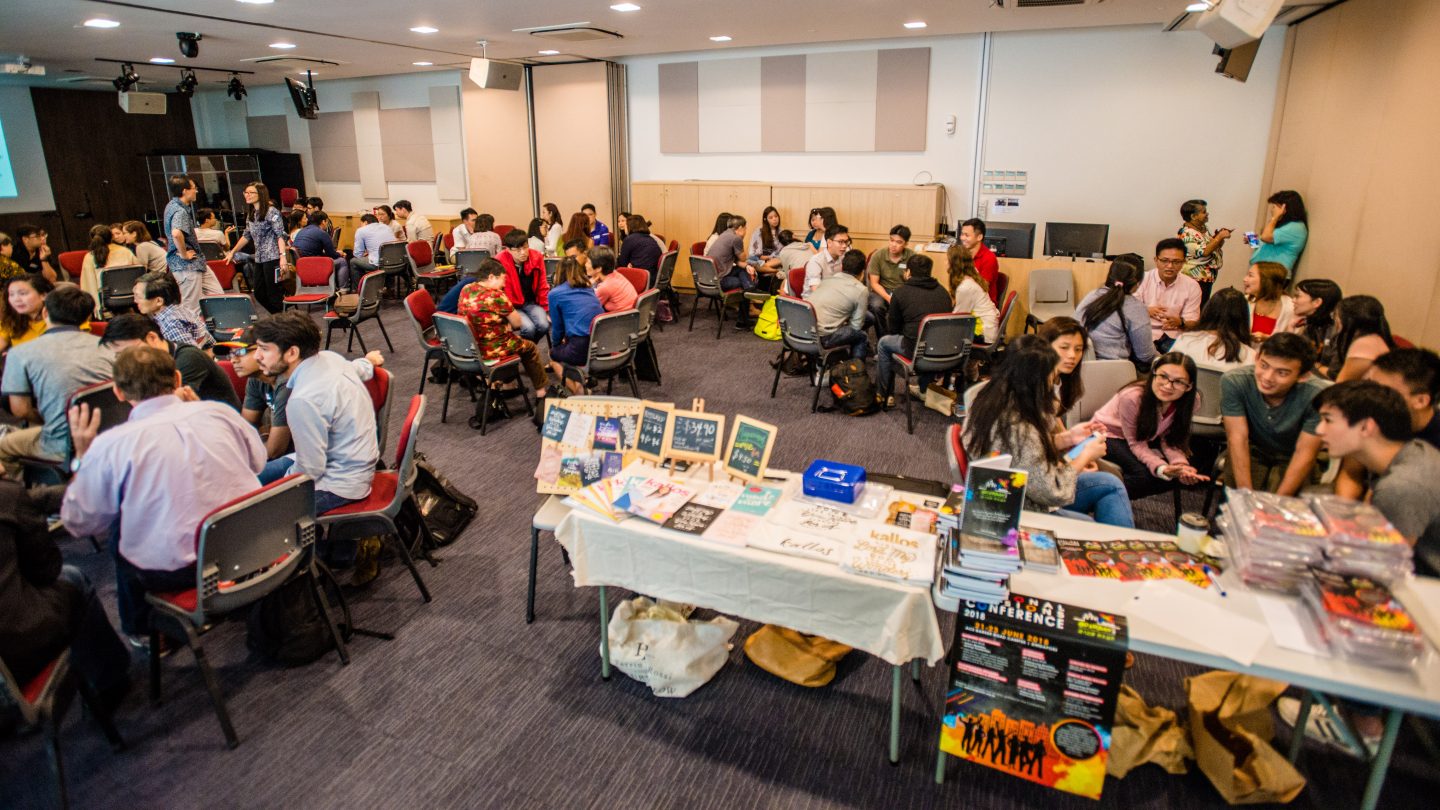
Photo courtesy of GoForth 2018
It is not just humans who face death – sometimes churches do too.
“Here is the basic premise: Every church has a natural life cycle of roughly 100 years,” says Samuel Law, Associate Professor of Intercultural Studies at Singapore Bible College.
“And it will naturally die unless there is an intentional effort of revitalisation.”
On the “cusp of change”
Law, who has served for over 20 years in pastoral ministry, ranging from youth ministry to senior pastor, in both large and small churches, states: “It is my belief that Chinese churches globally are in what can be defined as the ‘cusp of change’.”
“For every generation, this need for revitalisation is even more critical.”
It is a well-documented phenomenon that this “cusp of change” is at the crux of whether a Christian organisation faces death and decay or revitalisation. It is a natural process involving both the divine and human factors.
Law explains: “Revitalisation is defined as the process by which organisations adapt to their changing contexts.”
Having visited nearly 20 local churches in the last two years, Law observes: “I have seen greying congregations, some stagnant congregations, but also, a few revitalising congregations. I believe the Singapore church is also at this ‘cusp of change’.
“Although the mission of God remains the same from Genesis to Revelation, it is incarnated in different forms every time the church enters a new cultural context.”
The Singapore church is at the ‘cusp of change’.
He emphasises: “And every generation is considered a new cultural context.
“In the 21st century, this need for revitalisation is even more critical because we live in multi-cultural, constant-changing urban settings.”
Filling the gaps
Ng Zhi-Wen, who served in the organising committee of the GoForth 2018 National Missions Conference, had the chance to see the potential of the church through that event. “I had the joy of seeing people from many churches gathered to be energised, equipped and engaged to be on mission for God, seeking transformation in Singapore, the cities of Asia and beyond.”
He is keen to keep that passion going. However, he also realises there are gaps in that vision of a transformational church:
- Between people being called “disciples”, and living as disciples of Christ.
- Between the language of urban missions and the language used in Sunday School (or adult discipleship programmes, for that matter).
- Between how the Bible is taught and studied, and the call to live out the Bible’s teaching on the street.
“Church is not just about programmes. It is also about creating safe and hospitable spaces so that people can interact freely.”
The other questions he has are: Are local church communities well-equipped for urban missions? Could they raise people who would see the city as their mission field – not in spite of, but because of their local church?
On a positive note, Dr Kwa Kiem Kiok, lecturer at the Biblical Graduate School of Theology (BGST), observes: “Singapore churches are losing the sacred-secular divide: that only spiritual things count in heaven, while matters on earth are worthless. Instead, Christians realise that witness and mission means they are to be Christ where they are and at all times.”
Kwa is also “heartened” that Singapore churches have “matured in their understanding of missions” in recent years.
From the starting point
As Singapore enters her bicentennial year, it is opportune to re-examine where the church stands.
Ng explains: “To re-examine what ‘discipleship’ and ‘missions’ is and does, and to re-think what it means to be a missional church community in a local urban neighbourhood.”
To that end, Kwa and Ng recently invited other like-minded believers from diverse backgrounds into the conversation.
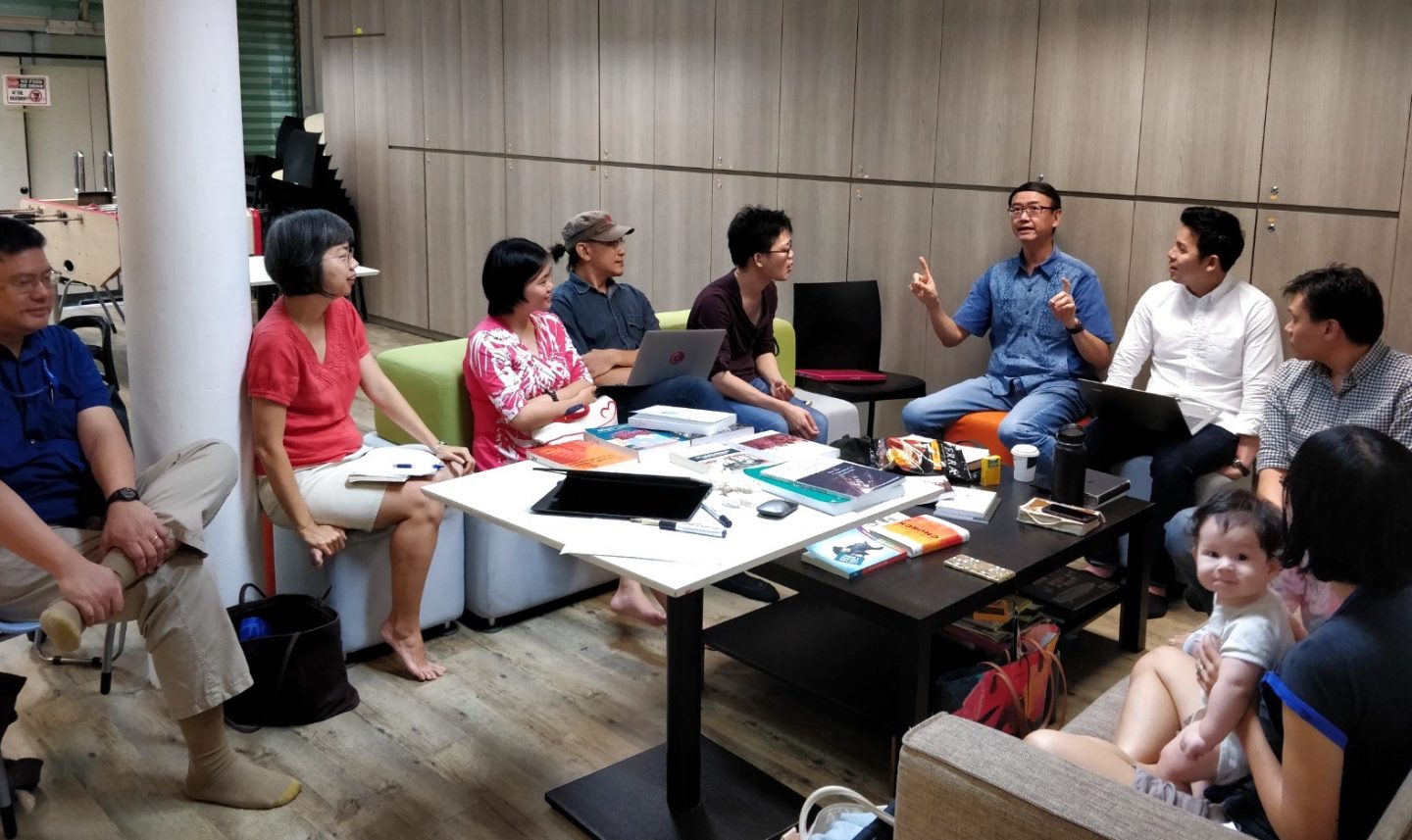
Dr Goh Wei Leong (in blue) shares his thoughts in one of the discussions. Participants Tan Seang Pin, Ailene Grandey, Kenneth Thong, Matthew Tan, Jonathan Cho, Eunice Lin, Chng Eu Lee, Ronald JJ Wong and Samuel Law each wrote papers that addressed an aspect of Urban Shalom that arose during the discussions. Photo courtesy of Ng Zhi Wen.
Ng shares: “These were folks who saw the gap and were also prepared to re-examine everything.”
“A shared meal, without an agenda, this is a reflection of what Jesus did.”
After much sharing and discussion, the group has come up with a series of articles. “Our hope is to encourage leaders to start important conversations,” Ng says.
Some articles from the series reflect on the steps that have already been taken, while others consider means and methods of discipleship in today’s church.
Law’s article touches on the reality of dying churches and the need for continuous reform, focusing on the institutional aspect of discipleship. In contrast, Chng Eu Lee, who works with communities affected by disasters and extreme poverty, reflects on the need for multi-religious cooperation.
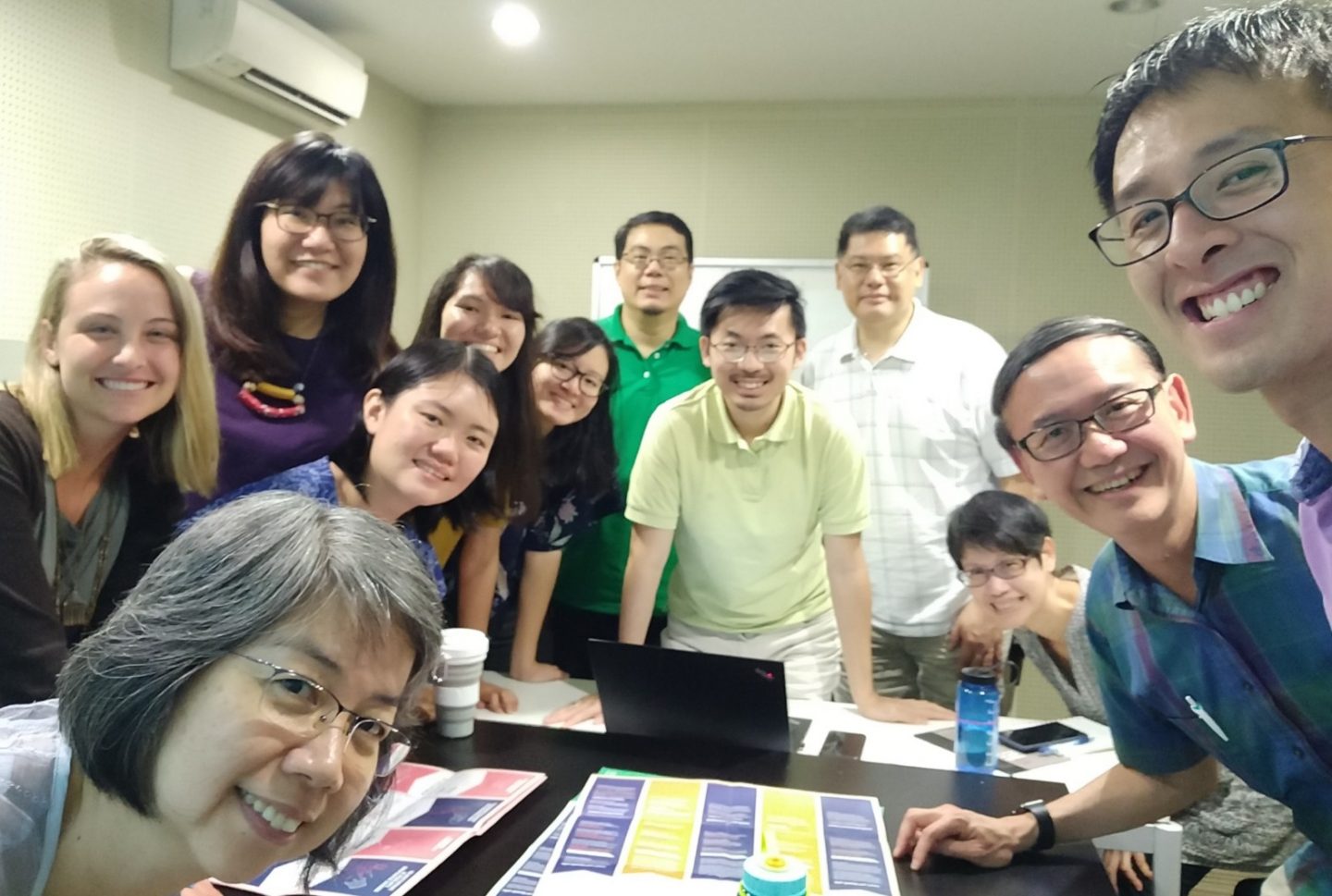
Dr Kwa Kiem Kiok (foreground, bottom left corner) and Ng Zhi Wen (top right corner) in a group photo with participants at one discussion. Photo courtesy of Ng Zhi Wen.
Others, like lawyers Jonathan Cho and Ailene Grandey, have written on topics such as neighbourhood outreaches and aligning with God’s purpose.
“They, by no means, address all the gaps … our conversations are ongoing. And neither do they provide clear-cut answers,” Ng notes.
Kwa adds: “Church is not just about organising programmes. It is also about creating safe and hospitable spaces so that people can interact freely. In multi-religious Singapore, it is important that these are spaces where people of the different religious beliefs can meet, mingle and converse.
“A shared meal, without an agenda except to share life and experience.
“All this is not new. Rather, it is a deeper reflection of Jesus and His ministry on earth.”
About Urban Shalom
Salt&Light will be running a series entitled, Urban Shalom, featuring some papers written by contributors whom Ng Zhi-Wen and Kwa Kiem Kiok have been in conversation with. These papers were the result of a collaboration between the Biblical Graduate School of Theology and Singapore Centre for Global Missions.
Ng and Kwa have centred their consultations on the question: How can local churches better disciple people for urban missions, to be salt and light in our city?
Re-thinking discipleship and Serving the neighbourhood make up two parts of the series. The first focuses on the counter-cultural and relational aspects of a discipleship that is aligned to God’s global mission. In the second, writers reflect on ministries that serve the common good of the community around the church.
We are an independent, non-profit organisation that relies on the generosity of our readers, such as yourself, to continue serving the kingdom. Every dollar donated goes directly back into our editorial coverage.
Would you consider partnering with us in our kingdom work by supporting us financially, either as a one-off donation, or a recurring pledge?
Support Salt&Light